Source: The Conversation (Au and NZ) – By Liz Allen, Demographer, ANU Centre for Social Research and Methods, Australian National University
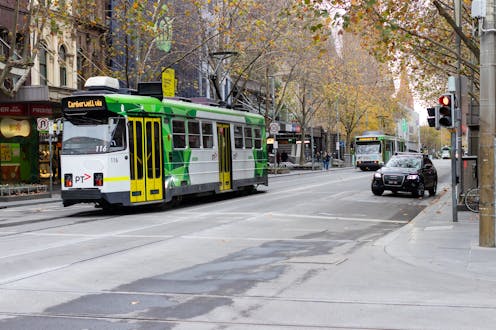
Shutterstock
There’s been much talk in recent days about the demographic and travel behaviour differences between Melbourne and Sydney and to what extent they may help explain why Victoria appears to be struggling with COVID outbreaks, while New South Wales isn’t.
Recent commentary has suggested transport, age, jobs, migrant population and other factors among the reasons that may help explain the difference.
As I outlined in a recent thread on Twitter, pure luck or random chance play a role in virus outbreaks — but you can also unpack some of these questions using publicly available statistics.
A tale of two states
When considering virus outbreaks, population characteristics and behaviours are crucial. The data doesn’t support the suggestion population and behaviour differ greatly between the states. When you look at the numbers, Victoria and NSW just aren’t all that different.
Is Victoria younger than New South Wales? No, median age and age distribution among the working age population (the most socially interactive group) aren’t all that different.
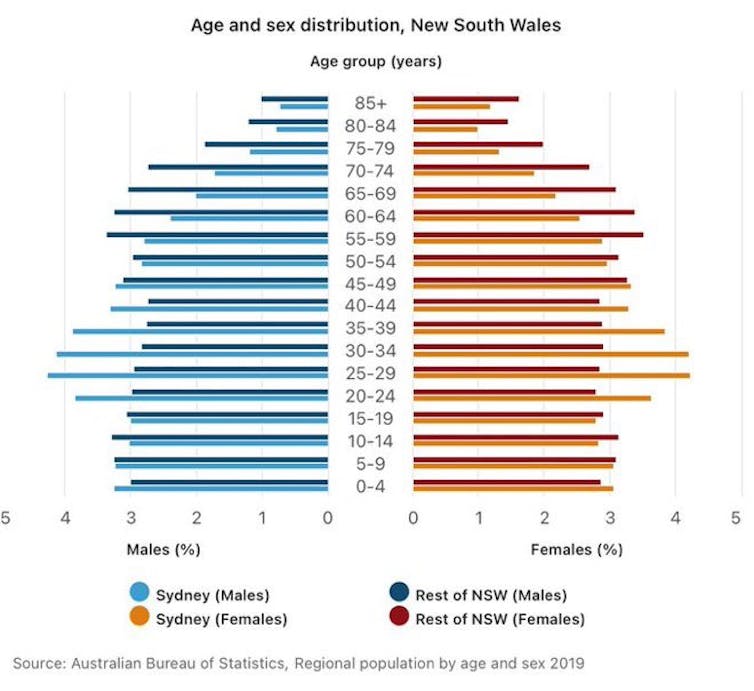
ABS
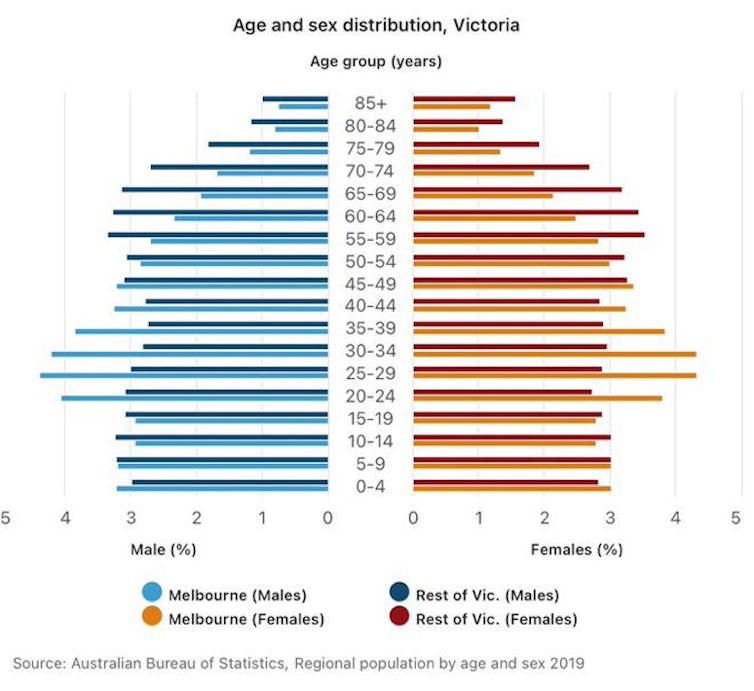
ABS
One theory circulating is that there are a lot of migrants in Victoria and that these communities are more likely to live together, visit and support each other. Are there more migrants in Victoria versus NSW? Not really, the proportion of the population born overseas is similar in NSW to that in Victoria.
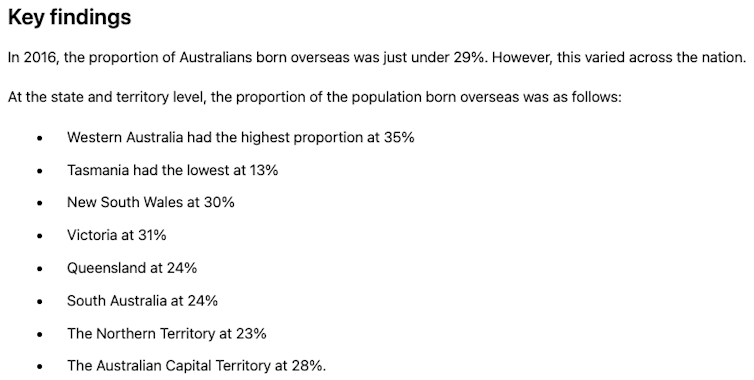
ABS
What about population density, then?
Is Melbourne more densely populated than Sydney? Not overall.
It’s true the ABS said in a 2021 data release the most densely populated areas in Australia were inner-city Melbourne (22,400 people per sq km), followed by Potts Point-Woolloomooloo (16,700) and Pyrmont-Ultimo (16,500), both in inner Sydney. But, as the ABS points out:
Population density can also be explored at a finer level by breaking Australia up into 1 km² grid cells.
Grid cells can be grouped into population density classes, ranging from no population to very high.
Sydney had the largest combined area in the high and very high density classes (193 km²), followed by Melbourne (77 km²) and Brisbane (15 km²).
The word “combined” there is very important.
Do people in Melbourne use active transport (meaning public transport, biking and walking) more than those living in Sydney? No, Sydneysiders have the highest rate of active transport use in the country.
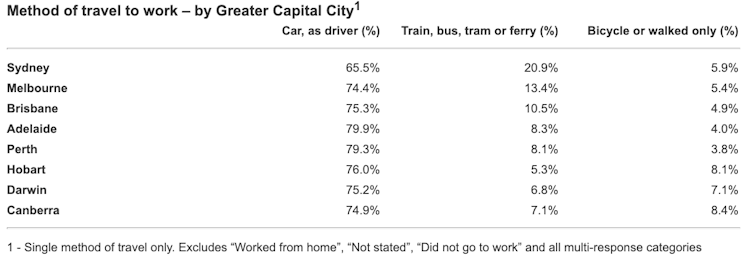
ABS
Do people in Victoria live in more crowded housing situations than in New South Wales? No, overcrowding appears to be a bigger problem in New South Wales where it is estimated there are 49,333 people living in overcrowded housing compared to 28,710 people in Victoria.
What about travel?
Do people in Victoria travel longer distances than those living in NSW? No, average commute distances are similar for Victoria and NSW.
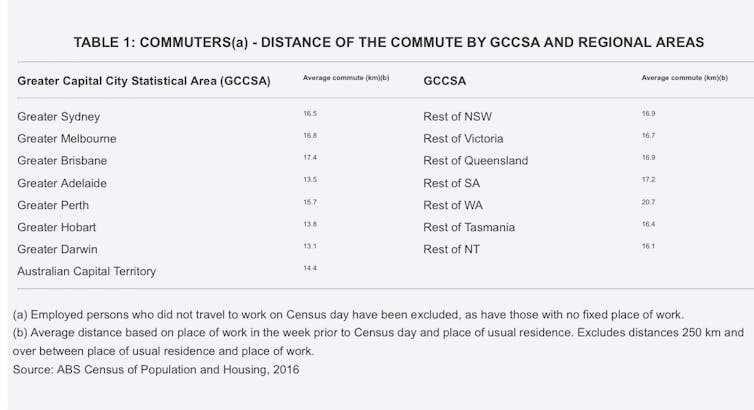
ABS
Do people in Melbourne travel around more than those in Sydney? No, the data doesn’t support that based on travel to work information.
In short, it would appear Victoria and NSW have more in common, demographically, than many think.
![]()
Liz Allen does not work for, consult, own shares in or receive funding from any company or organization that would benefit from this article, and has disclosed no relevant affiliations beyond their academic appointment.
– ref. Why has Victoria struggled more than NSW with COVID? To a demographer, they’re not that different – https://theconversation.com/why-has-victoria-struggled-more-than-nsw-with-covid-to-a-demographer-theyre-not-that-different-161996




